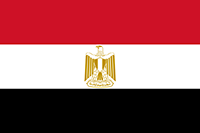



The Faculty of Science, Helwan University, is a governmental educational institution established by a presidential decree in 1980. Studies began in 1983 in the departments of “mathematics”, “physics” and “chemistry”, while studies began in the departments of “botany and microbiology”, “zoology and insects” and “ Geology” in 1996. The Faculty of Science, Helwan University aspires to be a leader in providing distinguished and advanced educational and research services in the fields of basic and applied sciences, production and investment of knowledge. It works to prepare distinguished graduates who are able to compete in the labor market through specialized and advanced academic programs with a smart system in the field of teaching, learning and scientific research, which contribute effectively to community service and environmental development locally and regionally. The Faculty of Science offers 18 bachelor's academic programs. The college's study system is the credit hour system. Helwan University grants, at the request of the Council of the Faculty of Science, a bachelor's degree in science in one of the disciplines after studying and passing the student successfully for 138 credit hours. It also offers more than 70 academic programs for postgraduate studies, including 13 diploma programs, 29 master's programs, and 29 doctoral programs in various disciplines. The Faculty of Science also offers a number of qualitative programs with tuition fees, such as the Molecular Biotechnology Program for Bachelor's and Master's degrees, Master Program in Applied Medical Physics, the Diploma in Biochemistry Analysis and the Applied Microbiology Diploma. Finally, qualitative programs have been developed with expenses under accreditation, such as a bachelor's program in artificial intelligence and data science, a diploma program in forensic evidence, and a professional diploma program in analysis. The College of Science includes a distinguished group of qualified professors and scientists from international universities in Europe, the United States and Japan, as well as a number of teaching assistants, assistant teachers and laboratory technicians. The Faculty of Science contains specialized qualitative centers such as the Space Weather Observation Center, Gas detector labrotory in coopration with Cern, Switzerland, the Remote Sensing Center, and the Geological Consulting Center. It also contains distinguished research laboratories to serve postgraduate students and faculty members.
